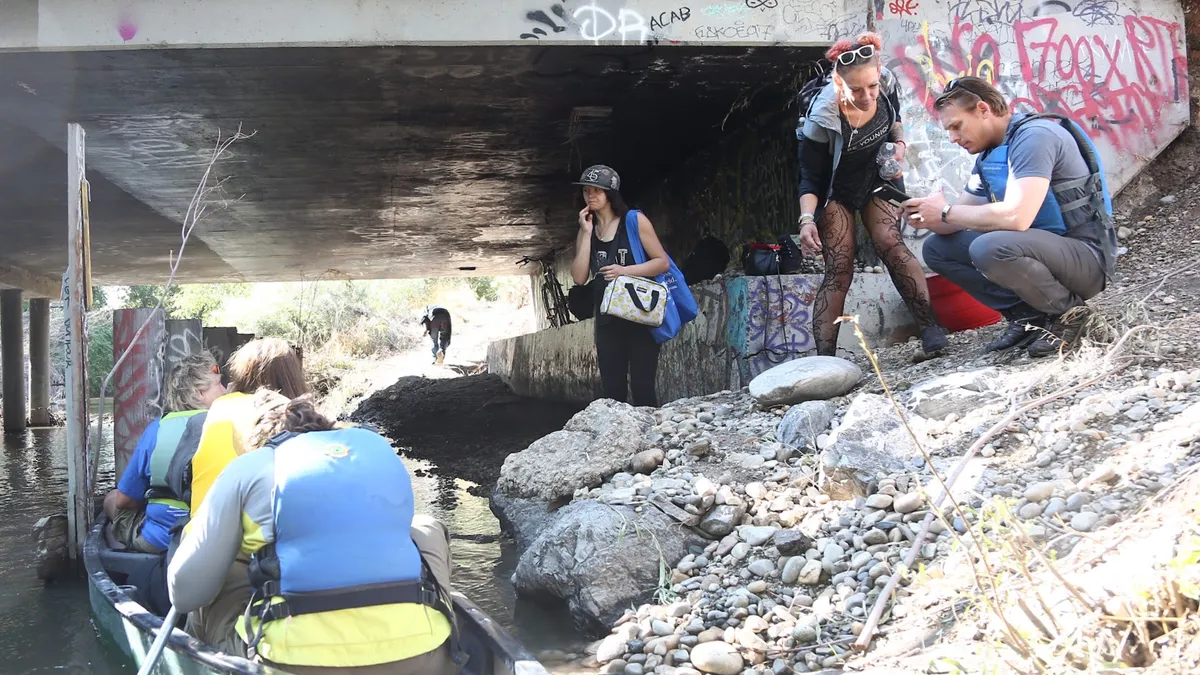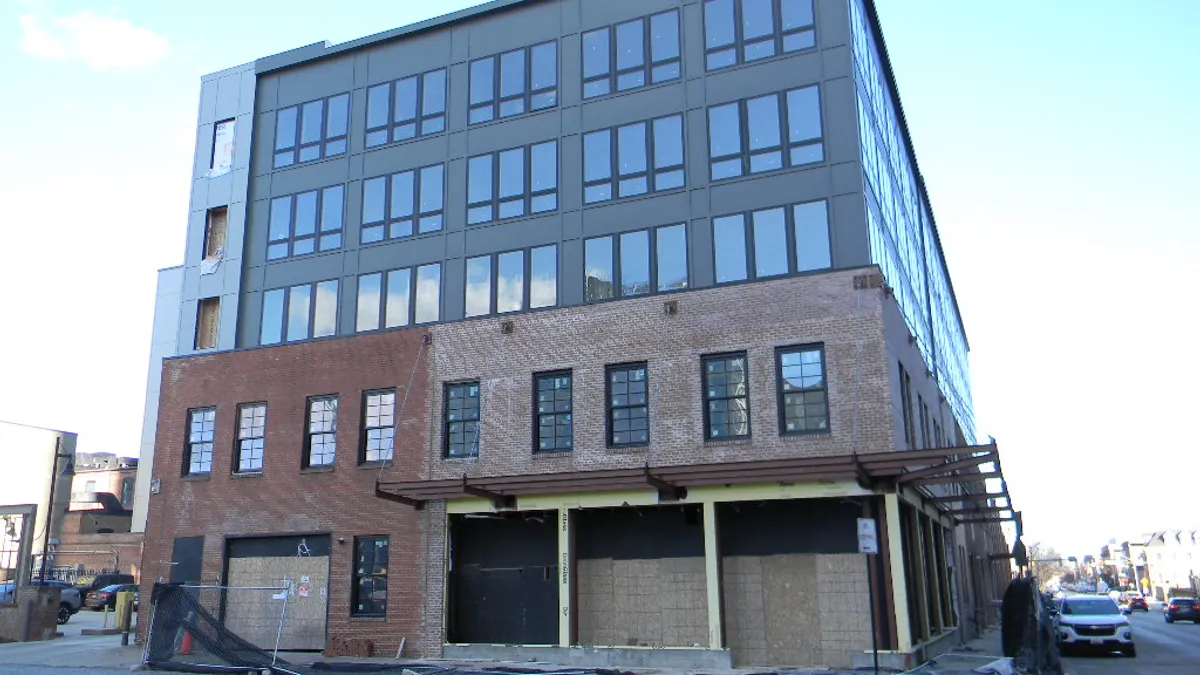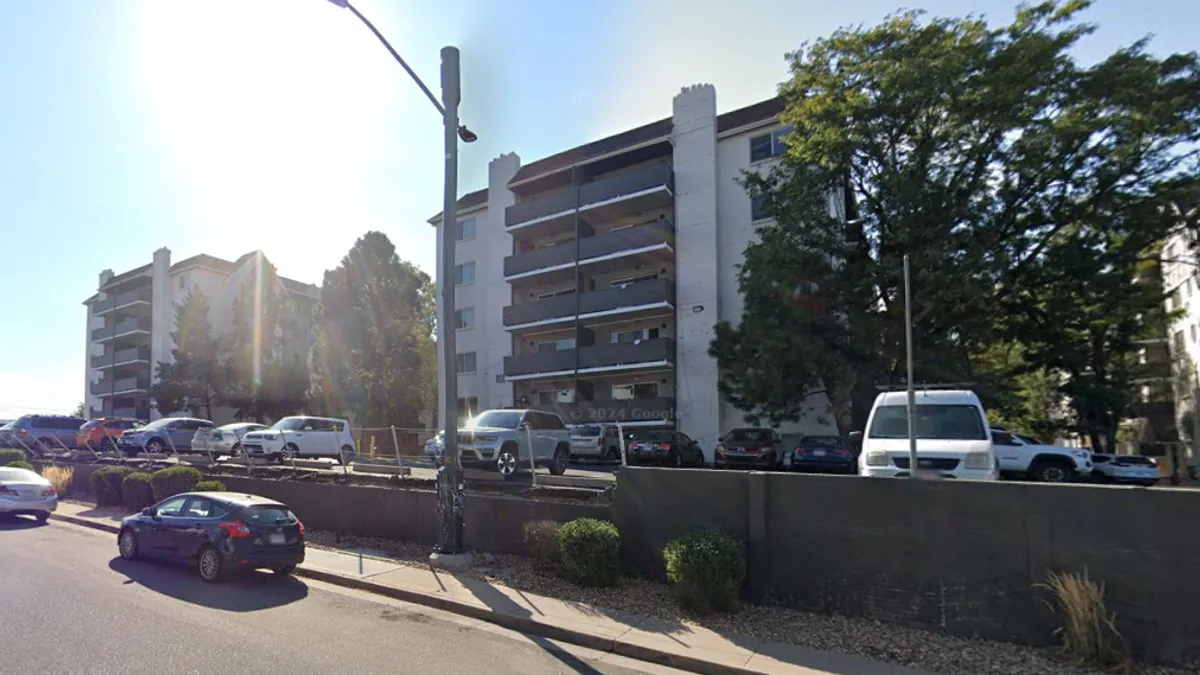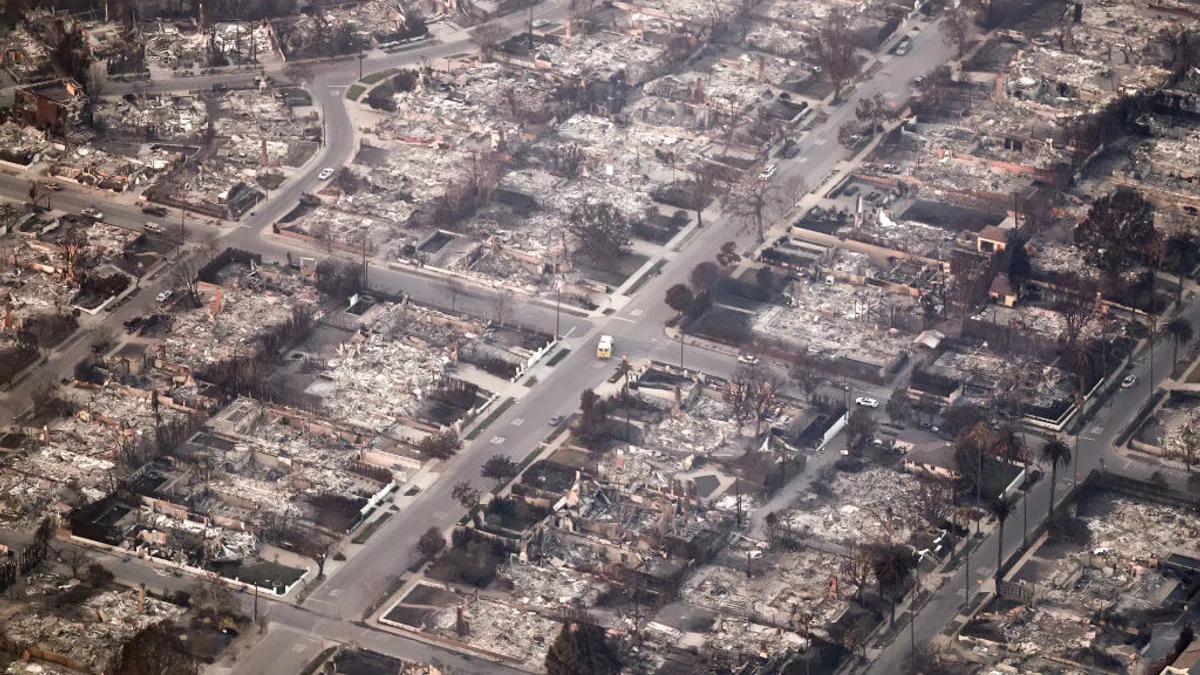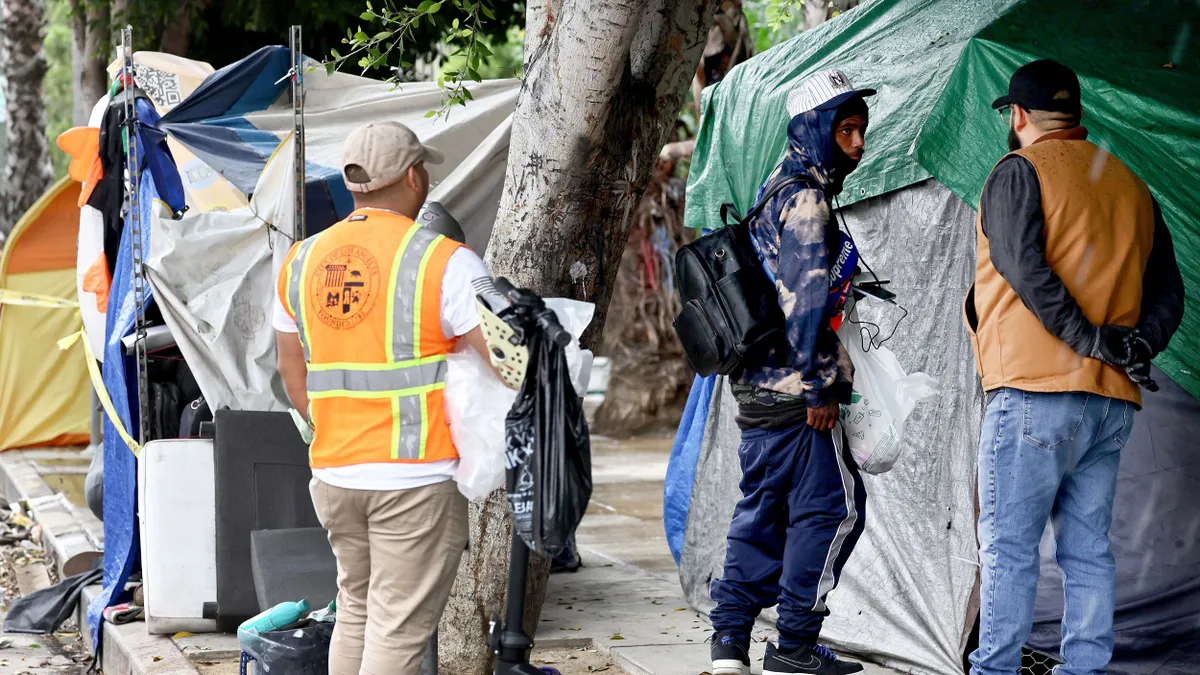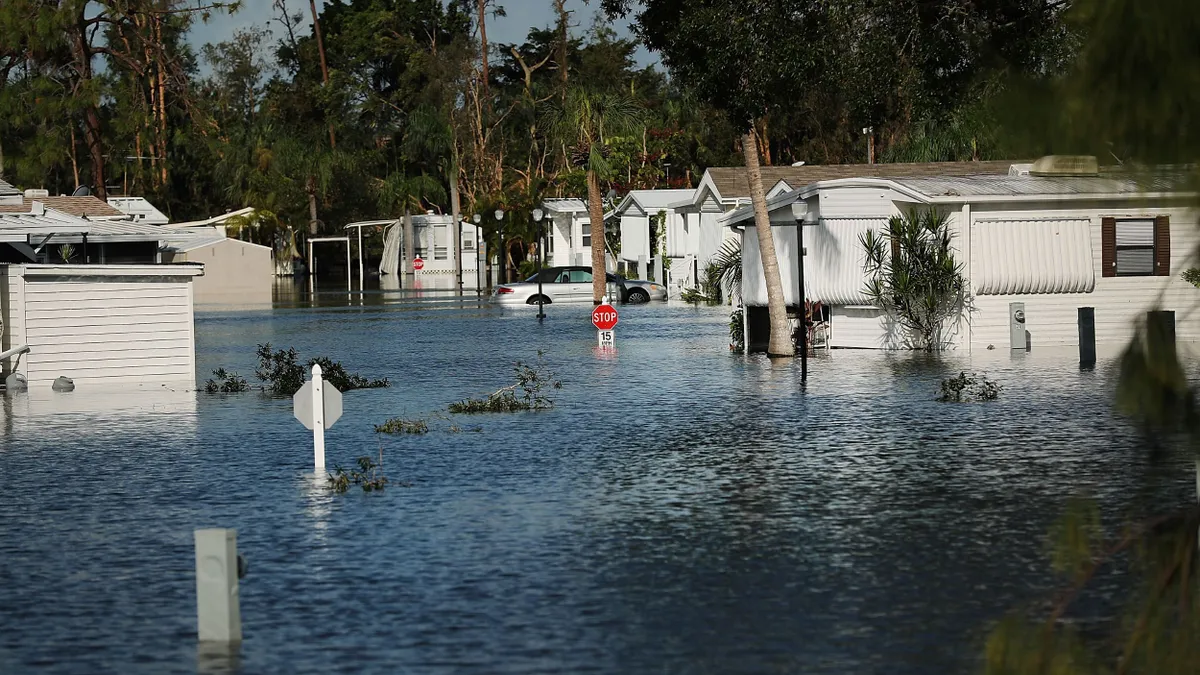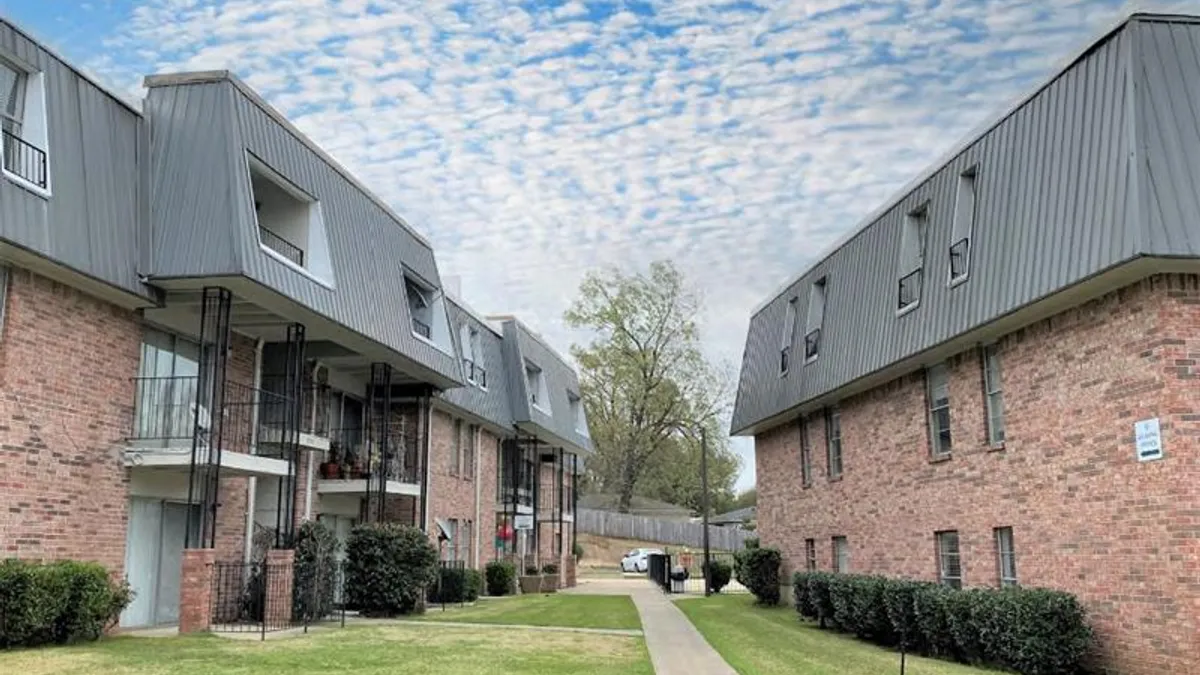What’s in a name? Until last year, Tony Milner was director of Salt Lake City’s Housing and Neighborhood Development Division. Now it’s the Department of Housing Stability. The city changed the name to signal that affordable and available housing “is the generational challenge” that Salt Lake City, and most U.S. cities, are facing, Milner said.
The work is crucial since the cost of buying and renting a home in the city has skyrocketed in recent years. The city’s affordable housing dashboard shows an increase in median household income over the same period, but that might result from rising housing costs pushing low-income households out of the city and higher-income families replacing them, Milner said.
The median rent in the city has increased more than $300 over the last five years, peaking at $1,353 in August, Milner said. Almost half of the city’s renter households are rent-burdened, meaning they spend more than 30% of their income on housing, and none of the city’s neighborhoods are considered affordable for lower-income families, he said. Milner added that the number of people experiencing unsheltered homelessness increased from 190 in 2012 to 281 in 2022.
The effectiveness of Milner’s leadership is crucial, considering his department could determine whether many low-income residents can continue to afford to live in the city and overcome financial hardships or fall into a state of instability or homelessness. His leadership will also play an outsized role in a department that is quickly growing and adjusting to the worsening state of Salt Lake City’s housing crisis.
The department has added 11 positions over the past three years, a 37% increase, including a consumer protection analyst role focusing on evictions. Its budget has grown about 140% over the same period, to $62.4 million. And the city raised the amount it offers to low-income homebuyers through its down payment assistance program from $10,000 to up to $20,000.
The team also analyzes how large projects and housing redevelopment plans may impact gentrification, an issue many city officials did not openly discuss just a few years ago.
Milner brings a unique perspective to his role: He’s a Salt Lake City native, but his ethnic heritage and sexual orientation always made him feel like an outsider, he says. He has over a decade of experience at nonprofits that received the types of grants his department now provides. And he brings a business management perspective to a government function that often is stereotyped as wasteful and poorly managed.
The nonprofits he ran were “well-managed but also still creative and inventive and progressive; data-driven, just like any other for-profit business,” he said. “I’ve carried that over to my public service as well.”
A history of community outreach
Milner began working for Salt Lake City’s housing department after about 17 years at nonprofits in the Salt Lake region addressing poverty, homelessness and housing. He said some of his favorite moments throughout his career have been interactions with community members and collaborations with other community providers and partners.
Milner graduated from the University of Utah with a degree in political science and economics, aiming to work in human services and management. His interest in working with people experiencing homelessness stems from his “personal alignment with the old adage of, ‘we/communities are only as strong as the weakest among us,’” he said. He soon started working as a program director and later executive director of a nonprofit called Family Promise - Salt Lake, which provides resources for families experiencing homelessness. The organization’s work depended on resources and time provided by volunteers and communities of faith.
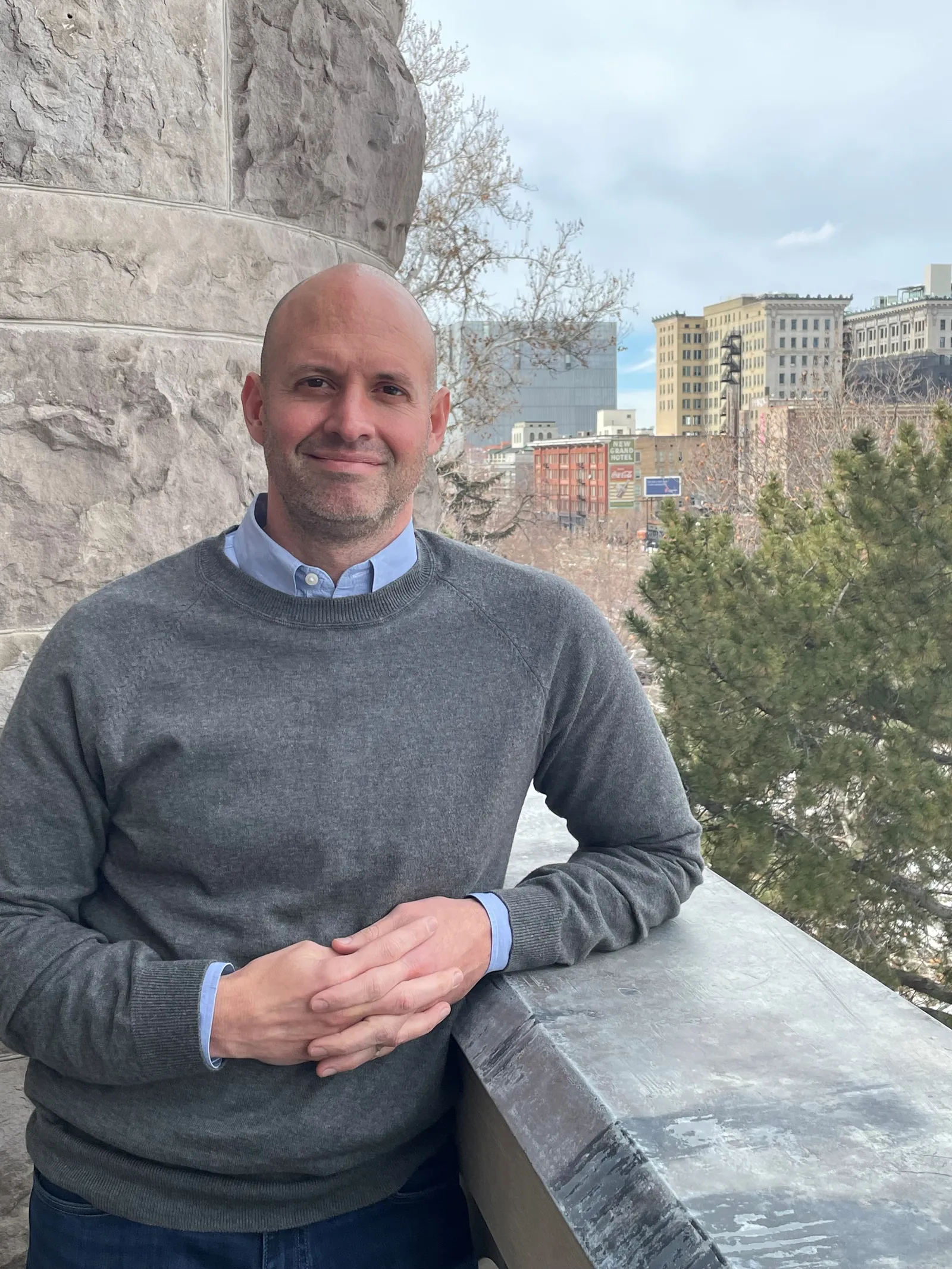
Milner spent much of his time reaching out to those faith communities. He recalled being asked to read from the Torah during a Saturday service at a Jewish congregation one day and the next day attending a service at a tiny Methodist church in a remote area so the congregation of about 30 could give the organization the $300 it had raised.
The experiences reinforced his belief that “there’s just such a wealth and possibility of community compassion and support, and it’s just a matter of tapping into that,” Milner said. “People want to help, and there are just so many good people, and it's giving them that opportunity to help and serve.”
Milner also worked as the case management and housing director at Utah Community Action. The nonprofit, one of the state’s largest dedicated to fighting poverty, has staff across the sprawling Salt Lake and Tooele Counties.
The nonprofit distributes rent and deposit assistance as well as “hands-on, holistic case management” aimed at putting households in better financial situations to prepare them for their next setback or crisis, he said.
Residents would come in saying they have three days to pay the rent before being evicted or else they would end up homeless, Milner explained. He and his team would triage which resources they need, such as money for rent, their children, utility bills, food or a job. They tried to connect them with as many resources as possible.
During that job, he always ended a conversation by asking if there was anything else the client needed help with. That opened up the door to clients saying they need help with a variety of things: accessing child support, getting a new dryer or getting their tire fixed, for example.
“There’s always just the most random stuff, but at least you always left things [with the client] knowing that we care about you, we’ve got you,” Milner said. “I think that built a lot of trust.”
Before joining the city government as a policy manager in 2018, Milner got a master’s degree in public administration from the University of Utah. He said he was drawn to housing because he recognized how all those human services, such as affordable child care or utility assistance, fall apart when housing is removed from the equation. Losing secure housing is destabilizing for families, and sleeping without four walls, a door, and a place where their ID or medication will not be stolen can cause trauma and stress. Every time kids have to move to a new school due to a loss of housing, it can send them back academically.
“That’s really been kind of my guiding light,” Milner said. “The value and importance of having your own place.”
His experience running nonprofits has also been valuable for understanding the challenges the organizations his department works with might be dealing with. For instance, when a service provider files a quarterly report that doesn’t add up or misses a deadline, instead of taking away their assistance, his staff tries to set up a conversation with them to figure out why and how they can fix it. Milner understands that the error could be due to a service provider’s staff member dealing with some kind of personal issue or a tiny organization grappling with other important matters, such as issues with its water heater.
“It’s hard running a small nonprofit, or a large nonprofit, and especially doing the work that’s being done for homeless individuals or people who are low income,” Milner said. “So it’s always tough, what they do, and we’re here to help and support them and build up their capacity. We’re not here to be mean grant administrators.”
Familiar challenges tackled with a collaborative approach
Salt Lake City is the regional hub for the entire state of Utah and a large section of the West. As in many cities, Salt Lake has a small group of vocal residents known as NIMBYs (not in my backyard), who oppose new developments near their home, said Milner. That group of residents has likely prevented the city from keeping pace with the natural growth in housing it should have experienced, contributing to the current housing situation, he said.
Department officials have realized that those residents may have valid concerns, and you can incorporate their ideas into projects, but their opposition should not delay or completely stop the production of new housing, Milner said.
Heather Royall, the housing stability department’s deputy director, said that despite an influx of funding over the past two years, the department’s budget hasn’t kept up with the increasing cost of housing and lack of available units or properties.
Utah state laws limit the city’s ability to take certain measures that would require developments to be affordable, enforce restrictions on short-term rental units and stabilize rent, said Royall. Those laws include restrictions on rent control, linkage fees or inclusionary zoning, said Milner.
The state legislature views Salt Lake City as being “too progressive, too Democratic, and not representative of the larger state of Utah,” said Milner. That view is hurtful since he believes “we’re all in this together,” he said. When Salt Lake City does well, the entire state does well, he said. If the city takes the lead on a project that shows success, it could be replicated throughout the entire state, he added.
Milner looks for effective solutions to challenges that the department can implement itself, said Royall. He works with the team to find opportunities to create new affordable housing, or preserve existing affordable housing, one funding source or available property at a time, Royall said.
At the same time, Milner said he believes in building a consensus throughout City Hall. A recent assessment of departments affected by homelessness found “it was, oh, all of them,” he said. “It’s everything from transportation, streets, public services, parks, trails, building services … police and fire.”
“I’m always making sure we’re checking enough boxes so if we’re doing a program or a resource, that it’s also advancing the goals of other divisions and departments as well,” he said, “bringing it back to making the city a better place to live for everyone, sheltered or unsheltered.”
Letting people thrive
Milner helps the department overcome its challenges by taking a collaborative approach; allowing team members to get involved with a variety of groups, committees, partners and initiatives; and ensuring that everyone on staff has a seat at the table during relevant conversations, said Royall.
“I don’t keep things on a need-to-know basis,” said Milner. “There’s a lot of good stuff that can come … with that when everyone’s in the loop.”
He also believes in letting staff shine and rise to the occasion when needed.
In 2019, when Milner was still working as a housing project and policy manager, city leaders allowed him to lead a grueling effort to quickly rehouse residents of an apartment complex that the fire department had deemed a fire hazard and unfit for habitation. With a small team, he gathered local service providers to “move mountains” to find rent deposits and new homes for the residents and help them move.
He didn’t sleep for weeks, he said. In the end, they rehoused 24 households living in the building’s 26 occupied housing units, often in better-quality places with lower rent. That included moving a 94-year-old man who had been heating his apartment with his stove into a cleaner and nicer low-income unit for seniors. The endeavor “was a ton of work, but it was phenomenal,” Milner said.
Burnout among staff can be a challenge, said Milner. It’s important that staff members know they can ask for and receive help on whatever they are working on and take time off when needed, he said. He said that the homeless response team deals with the brunt of community concerns — which can take a toll — so he always tries to introduce a bit of levity and laughter into their days and make sure they feel recognized and motivated. He will take them aside and let them know what they do is making a difference.
He tells members of his staff, “the work you do matters, and you’re making a difference for the city and the people that we’re serving.”
Royall said Milner “genuinely cares about the staff and our well-being,” always checking in with employees and asking what he can do to help them. “He leads by example and inspires others to rise to their fullest potential,” she said.
Open to innovation
Milner isn’t afraid to try new approaches to solve housing and homelessness issues. For instance, a local judge and avid kayaker noticed large homeless encampments near the Jordan River. She worked with Milner’s department in 2021 on launching a “kayak court” where she, attorneys and various service providers held court hearings by the river to address the encampment residents’ legal issues, including efforts to waive fines related to illegal camping, vagrancy and loitering.
The city also started holding monthly homeless resource fairs near large encampments. The department sets up tents with various service providers that can connect individuals with courts, workforce services, pet vaccinations and other services. And Salt Lake City recently started sending rapid intervention teams to provide resources and referrals at smaller encampments, finding their residents housing or shelter and cleaning up their encampments afterward.
“That’s something that’s been helping to motivate that team as well,” said Milner. “We’re willing to try new things; we’re experimenting; we’re being responsive.”
But with innovation comes accountability and ensuring what they're doing is achieving its intended goals. The city, for example, received an influx of federal pandemic relief funding that it's using to provide rental assistance. Milner said that the department needs to take a step back and evaluate how many people receive rental assistance, how many have been stabilized and whether that funding has led to a decrease in evictions.
“We’re going to really start tracking hard the eviction numbers,” said Milner. “Is it a Band-Aid, or is it truly stabilizing them?”
An outsider’s perspective
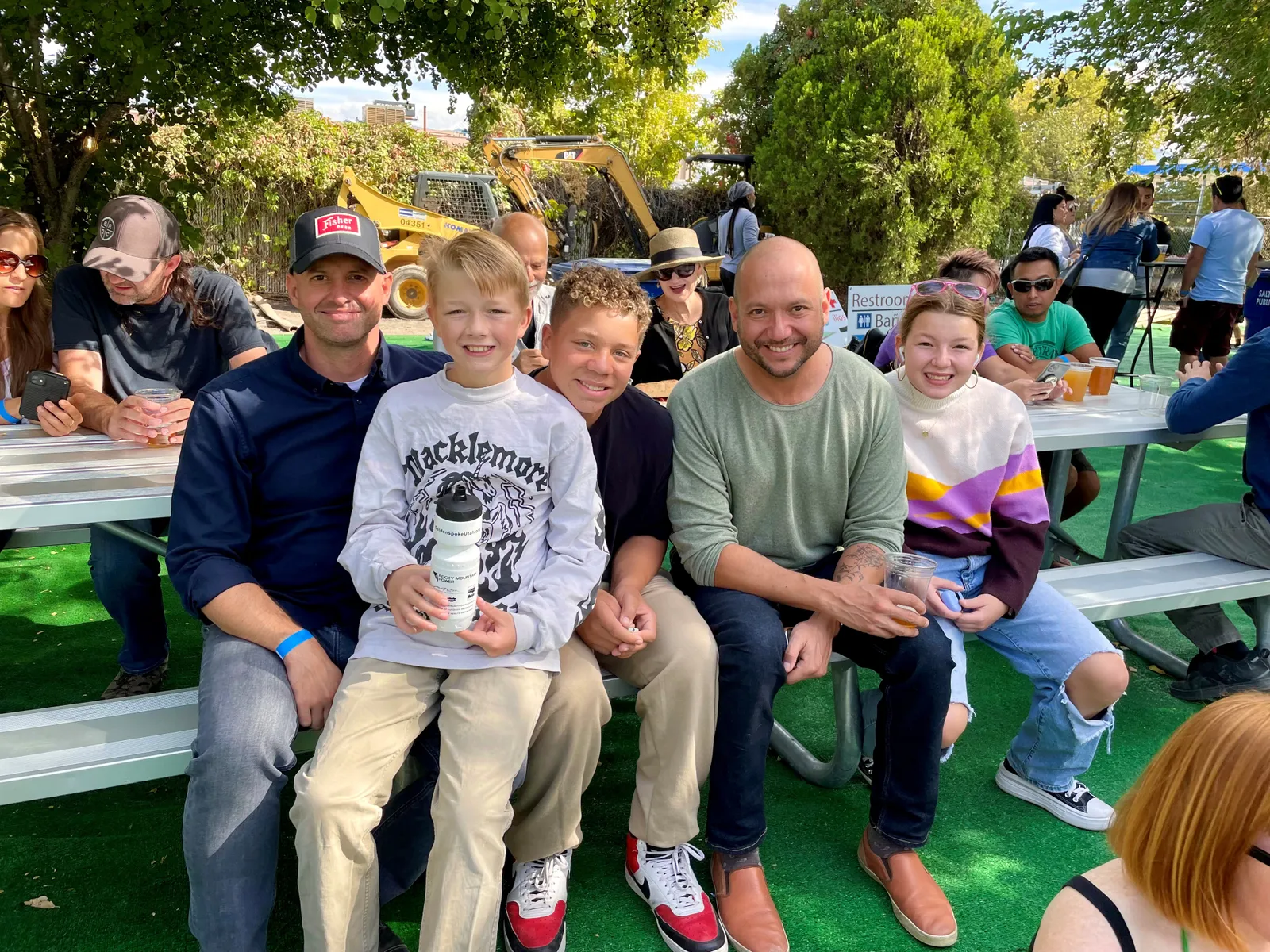
Milner has grappled with being seen as an outsider in the conservative community where he’s lived all his life. He was raised in the Church of Latter-Day Saints, as are the majority of Utah residents, but his heritage, which he describes as part Mexican, part Italian, set him apart from his peers, he said. As a married gay man, it took a successful legal challenge, which he filed in 2015, to compel the state to recognize his marriage and the co-parent adoption of his son.
“Having that outsider perspective of my background, but also being gay, it instills in you that minority perspective and the outsider perspective,” he said. That’s helped him understand the importance of inclusivity, such as using the proper pronouns of transgender and gender nonbinary people and confronting the unsavory parts of Salt Lake City’s housing history.
He printed out a large city map showing how the city was redlined in the 1930s to segregate people of color in different neighborhoods from White people, and he hung it up in the division’s conference room. Many areas experiencing high displacement risk today were redlined in the past, reflecting historic patterns of discrimination and segregation, he said.
“We are still dealing with the legacy of redlining,” Milner said. “That’s our legacy. Now what do we do to address the legacy?”’



